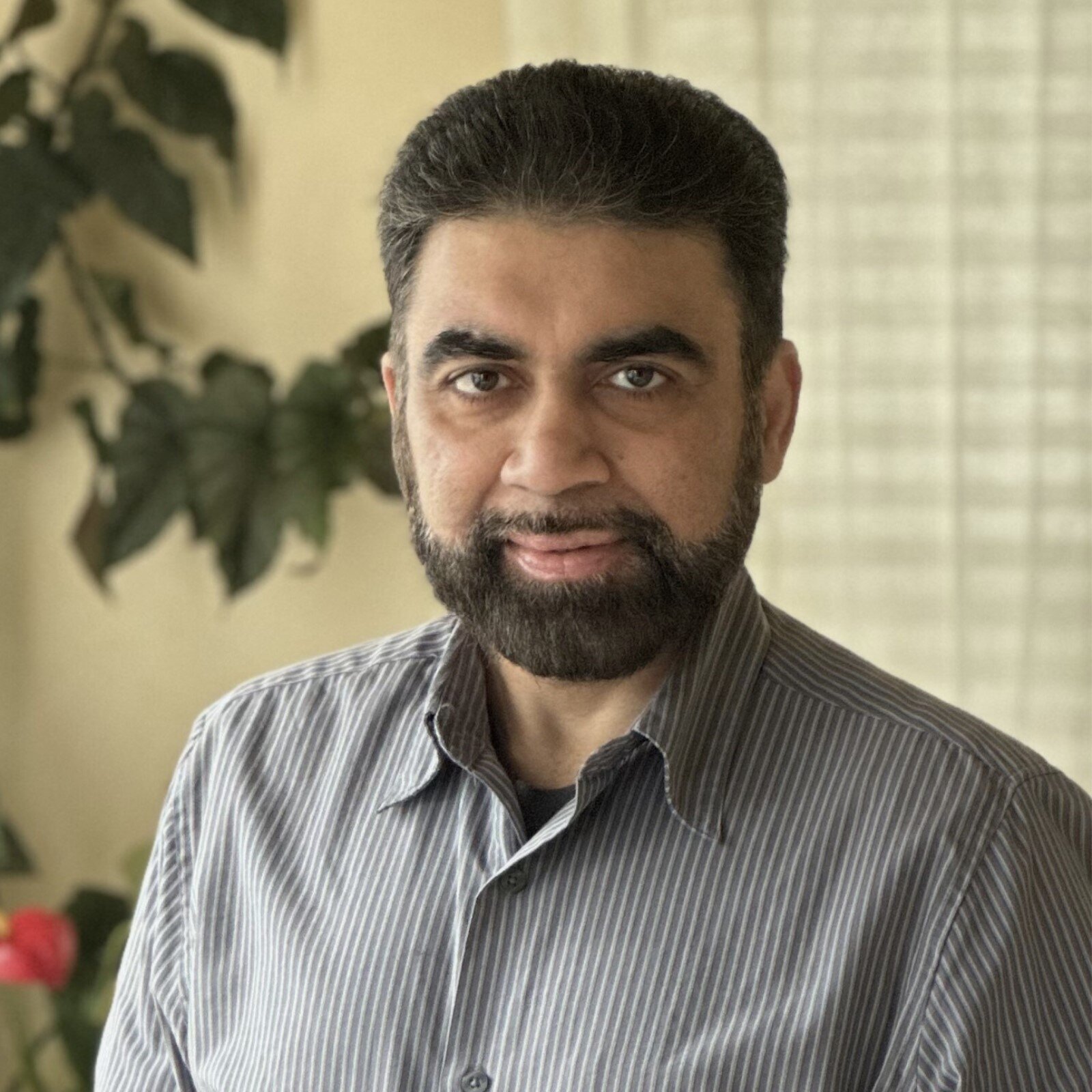Panel discussion on...
Cognitive health
Welcome in the world of alternative meat: analytical challenges and perspectives

What are the latest global and regional trends in cognitive health supplements, and how do companies tailor their products to meet the unique needs of different markets?
Cognitive Health Supplements market is valued at 9.0 billion (2023) and is projected to reach nearly $9.92 Billion by 2033, reflecting a CAGR of 13.3% during this period (1), due to increasing consumer interest in mental wellbeing and enhanced cognitive performance such as inability to concentrate, memory loss, anxiety, and depression.
According to leading stakeholders of the industry, the key trends in Cognitive Health Supplements are:
- The holistic approach to cognition: consumers seek for supplements that can target not only cognitive performance but support mood, stress management and sleep quality too, recognizing the interconnection among various mental functions and conditions;
- Combination of nootropics: this strategy goes through the selection of multiple ingredients known as “brain boosters” or “cognitive enhancers”, with the aim of targeting various aspects of cognitive function simultaneously, by leveraging the synergistic effects of the different compounds.
- Personalization: there is a rising preference for supplements tailoring specific consumer needs, considering factors such as gender, age, lifestyle, up to genetic heritage and microbiota evaluation; this health consciousness can be partially attributed to the popularity in wearable technology to monitor and measure personal data.
- Natural origin: Consumers demonstrate an increasing favour for supplements formulated with sustainable or ethically sourced ingredients from plant-based origin or certified supply chains.
At the same time, branded companies are adopting various strategies to cater to the unique needs of diverse markets:
- Demographic-Specific Formulations: Developing products that address the specific cognitive health concerns of different demographic groups, such as students seeking enhanced focus, professionals aiming for improved memory, or seniors concerned with cognitive decline.
- Cultural Considerations: Incorporating ingredients that resonate with regional preferences and traditional practices. For example, using Bacopa monnieri, an herb traditionally used in Indian Ayurvedic medicine, in formulations targeting markets familiar with its cognitive benefits.
- Regulatory Compliance: Ensuring that products meet the regulatory standards of each target market, which may involve adjusting formulations, labeling, and marketing claims to align with local guidelines.
- Localized Marketing Strategies: Employing marketing campaigns that reflect the cultural values, languages, and communication styles of specific regions to build trust and relevance among consumers.
What are the most promising breakthroughs in cognitive health and/or supplements over the past year, and how are they influencing product development?
The most recent literature related to cognitive health supplements is not disclosing innovative solutions in terms of new ingredients, rather it is proving evidences about mechanisms of action through innovative platforms like multi-organ-on-chip (2) and brain organoids (3) as well as by reporting clinical data related to the improvement of physiologic cognitive impairment in ageing.
The so called “gut-brain axis” is still on the wave thanks to the consistent scientific advances demonstrating the pivotal role of gut microbiota in influencing emotional and cognitive centres of the brain. Probiotics, prebiotics and post-biotics are gaining momentum with the extremely flourishing clinical studies in this domain and the solicited market request. Besides psychobiotics segment, also vitamins (C, D, B6), botanicals (berries, fermented papaya…) and antioxidants (polyphenols…) are increasingly mentioned to contribute to the improvement of gut barrier integrity by enhancing SCFA production, thus boostering the gut-brain connection (4).
How has the consumer understanding of brain health evolved recently, and what role do branded ingredients play in shaping their trust and preferences?
There is a gradual shift in the global mental health trend from the pandemic focus on anxiety, towards the brain-body connection, reflected by the Latin motto: “Mens sana in corpore sano”. Indeed the frenetic and very dynamic society, particularly in such socio-economic climate, calls for support to mental health combined with emotional resilience and cognitive clarity. The growing consciousness and corresponding consumers’ demand is reflected by the strategies implemented by health supplements companies, which not only rely on categories such as vitamins, botanicals, probiotics or omega-3, but also prefer to invest on accurate formulation processes, where branded ingredients become the core of the product. Indeed, there is a strong request from branded companies to report registered trademarks on their final product label, to highlight a specific ingredient features and put the consumer in the condition to get detailed information on it. As a result, details about quality, absorption rate, bioavailability and clinical efficacy become easily accessible, conferring premium character to products implementing co-branding strategies, thus resulting into product differentiation with respect to standard or generic solutions.
Are there specific cognitive functions, such as memory, focus, or stress management, that are driving the majority of consumer interest? Why?
In the recent years, with the ease of anxiety and depression burden risen by Pandemic, the global market has seen a trigger to expansion due to a cross-contamination coming from new consumer categories such as: (i) Athletes seeking for brain effectiveness together with physical performance; (ii) Academics and Professionals, including researchers, operators and managers, affected by performance anxiety, competitiveness, work shifts, business trips and consequently work-related stress; (iii) Millennials and older Gen-Z, among the most concerned group about climate change, suffering from eco-anxiety and consistently committed to the ethical, social, environmental and labour aspects of social responsibility; (iv) Gen-alpha and earlier Gen-Z, grown in a technological surrounding, continuously exposed to social media and on-line gaming, characterized by a growing social and performance anxiety as well as a consistent drop in focusing at school, influencing mental balance, levels of physical activity and their ability to interact with others in ‘real life’.
Another important driver is the mutual correlation between cognitive function and longevity as with ageing the risk of developing neurodegenerative conditions increases, but at the same time chronic stress can damage neurons, leading to impairments in memory and learning, can increase inflammation and in turn promotes cognitive decline. The growing consciousness about the proactive role in reducing the aging-derived on cognitive function through physical activity, diet and cognitive stimulation takes the name of Cognitive Reserve Concept. It consists into the brain’s ability to compensate for age-related changes and damage thanks to factors like higher education, engaging in mentally stimulating activities, or a healthier lifestyle. The concept of cognitive reserve underscores the idea that brain health isn’t solely determined by age or genetics but can be shaped by lifestyle choices, such as cognitive health supplements (5).
What role does sustainability play in the cognitive health space, particularly in sourcing and manufacturing ingredients?
Sustainability has become a critical focus in the cognitive health space as consumers increasingly prioritize products that align with ethical and environmental values. Companies are adopting sustainable practices in sourcing, manufacturing, and product development to address this demand:
- Ingredients are preferably sourced from plant-based or natural origin (Bacopa monnieri, ashwagandha, ginkgo biloba, lion’s mane mushrooms, etc..) with sourcing often guided by sustainable agriculture practices such as organic farming to minimize pesticide use, fair trade partnerships to support local farmers and communities;
- Traceability and Transparency guaranteed by blockchain technology and certification systems (Rainforest Alliance, USDA Organic, or Non-GMO Project Verified..);
- Marine and Algae-Based Sources for DHA and EPA, offering sustainable alternatives to fish-derived omega-3 fatty acids and whose cultivation is less resource-intensive than fishing, reducing strain on marine ecosystems.
Moreover, nutraceutical companies are implementing diverse sustainable manufacturing practices such as:
- Carbon Footprint Reduction, by switching to renewable energy sources for manufacturing processes, by optimizing logistics to reduce emissions and by supporting sustainable activity that can help counterbalance their own emission equivalents;
- Innovative management of Water & Waste by adopting closed-loop water systems (i.E. vertical farming) and recycling manufacturing waste to reduce environmental impact and create a new value chain for by-products;
- Use of Green Chemistry like green extraction technologies (supercritical CO2) avoiding organic solvents or precision fermentation leading to lab-grown ingredients as scalable, eco-friendly alternatives to traditional sources;
- Selection of Eco-Friendly Packaging based on biodegradable, recyclable, or reusable materials like or reduction of the excess packaging materials with refillable systems;
- Integration of Corporate Initiatives such as Environmental, Social, and Governance (ESG) goals into the business strategies
- Third-Party Certifications such as B-Corp, LEED, and ISO 14001
How are regulatory landscapes across different regions influencing the claims and marketing of cognitive health supplements? What specific regulatory challenges should new entrants to this space be aware of?
We should take into consideration that the regulatory environment represents a challenging factor for new developments especially when it comes to health claim registration procedure to competent authority. Indeed, both safety and efficacy studies required as mandatory are considered valid or not for this purpose, according to local procedures. As a result, it can happen that a dossier accepted in a certain country, is not compliant in another. The paradox that ingredients suppliers are struggling with on a daily basis is the requirement to show the efficacy profile by easing symptoms of certain conditions, or by improving a specific function or reducing the risk of a chronic disease in a significant manner, by the customer/ consumer point of view. On the regulatory side however, being food supplements destined to healthy people, competent authorities require them to prove a relevant effect, not only compared to base line, but versus placebo when taken by healthy people. The lack of harmonization make the different standard barely impossible to meet or extremely expensive and incompatible with innovation. From a personal point of view, this is a global issue as it is not influenced by regional landscapes, rather it depends on regulatory processes where pharma-like competent authorities are involved. In light of this aspect, typical stress management – still among the most required functions in this market segment - it is out of games, although in early phases it could be dramatically responsible of other health condition worsening. It becomes extremely challenging then to develop a product suitable for European, USA and Korean markets at the same time. In Europe, dietary supplements are intended for healthy population only and we cannot either claim any other activity than those approved for vitamins, while, in the USA, we are required to see an effect against the health concern with respect to placebo, and additionally in Korea, you must need to run the clinically trial locally. Different requirements, different protocols, ad hoc clinical trials, huge investments, out-of-control timelines. The prevention purpose of supplements, especially for cognitive and mental wellness, becomes nearly impossible to prove while sleep quality investigation may require either extremely expensive protocols using instrumental polysomnography for instance or huge number of subjects when questionnaires are administered to get statistically significant results, minimise bias and maximise precision.
This is one of the biggest challenge in our industry, given the increasing life span and the need to approach aging in good physical and mental health: indeed, everything is left in the hands of consumers with little to poor support from the social-economic politics proposed by worldwide governments in terms of prevention.
Figure 1. Overlaid Representative Chromatograms for PBM (black) and Organic Beef (pink) (6).
Panelists
References and notes
- https://www.futuremarketinsights.com/reports/cognitive-health-supplement-market
- Raimondi, I., Izzo, L., Tunesi, M., Comar, M., Albani, D., & Giordano, C. (2020). Organ-On-A-Chip in vitro Models of the Brain and the Blood-Brain Barrier and Their Value to Study the Microbiota-Gut-Brain Axis in Neurodegeneration. Frontiers in Bioengineering and Biotechnology, 7. https://doi.org/10.3389/fbioe.2019.00435.
- Kim, H., Jang, E., Sankpal, N., Patel, M., & Patel, R. (2022). Recent Development of Brain Organoids for Biomedical Application.. Macromolecular bioscience, e2200346 . https://doi.org/10.1002/mabi.202200346.
- Fekete, M., Lehoczki, A., Tarantini, S., Fazekas-Pongor, V., Csípő, T., Csizmadia, Z., & Varga, J. (2023). Improving Cognitive Function with Nutritional Supplements in Aging: A Comprehensive Narrative Review of Clinical Studies Investigating the Effects of Vitamins, Minerals, Antioxidants, and Other Dietary Supplements. Nutrients, 15.
- Savarimuthu, A., & Ponniah, R. J. (2024). Cognition and cognitive reserve. Integrative Psychological & Behavioral Science, 58(2), 483–501. https://doi.org/10.1007/s12124-024-09821-3
































